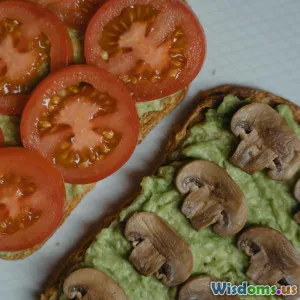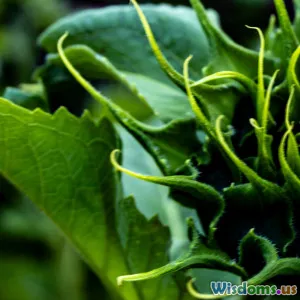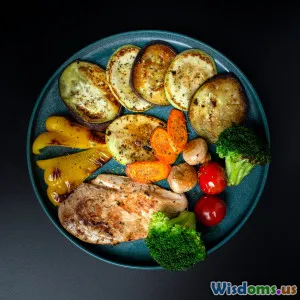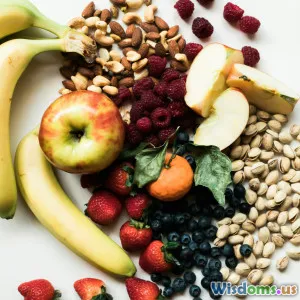
Seven Surprising Foods High in Vitamin K
11 min read Discover seven unexpected foods packed with vitamin K for a healthier diet. (0 Reviews)
Seven Surprising Foods High in Vitamin K
Every time we think about vitamin-rich foods, bright oranges for vitamin C or bananas for potassium come to mind. Yet, there’s one essential nutrient that often slips under the radar: vitamin K. Best known for its crucial role in blood clotting, vitamin K is also vital for strong bones and overall cardiovascular well-being. While leafy greens like kale and spinach are classic sources, nature has tucked this nutrient into some unexpected corners of our plates. Unveiling these hidden gems can diversify your meals and bolster your health in unanticipated ways.
Let’s explore seven surprising foods that are brimming with vitamin K—and how you can easily add them to your daily menu.
Fermented Soybeans (Natto)

When it comes to superfoods sky-high in vitamin K, natto reigns supreme. This sticky, pungent Japanese dish is made from fermented soybeans. One serving of natto can provide more than 800% of your daily vitamin K2 requirement! That’s because, unlike the more common K1 found in greens, natto is especially rich in K2, the subtype linked with enhanced bone mineral density and heart health.
Real-world insight: Many Japanese attribute their low osteoporosis rates to the regular consumption of natto. While its stringy texture and earthy aroma are an acquired taste, you’ll find it as a staple on many Japanese breakfast tables. Just a tablespoon stirred into rice or added atop avocado toast introduces a mega-dose of vitamin K to your meal.
Try this tip: If you’re new to natto, pair it with a dash of soy sauce, chopped spring onions, and even mustard. The condiments temper its flavor and work as a gateway to this nutritional dynamo.
Prunes

Think of prunes only as relatives of raisins in the snack aisle? It’s time for a reassessment. A single cup of prunes delivers almost 75 micrograms of vitamin K—about 60% of an adult’s recommended daily intake. Prunes are also rich in dietary fiber, potassium, and antioxidants, making them a remarkable multitasker for your health.
Why prunes stand out: Numerous studies highlight prunes’ potential to support bone health, partly due to their vitamin K content. In a 2016 clinical trial, women who ate five to six prunes daily maintained better bone density over time than those who didn’t add prunes to their diet.
Serving suggestion: Swap sugary granola bars for a handful of prunes, add them to oatmeal or yogurt, or blend into smoothies. Their subtle sweetness and chewy texture make prunes a satisfying way to up your vitamin K.
Blueberries
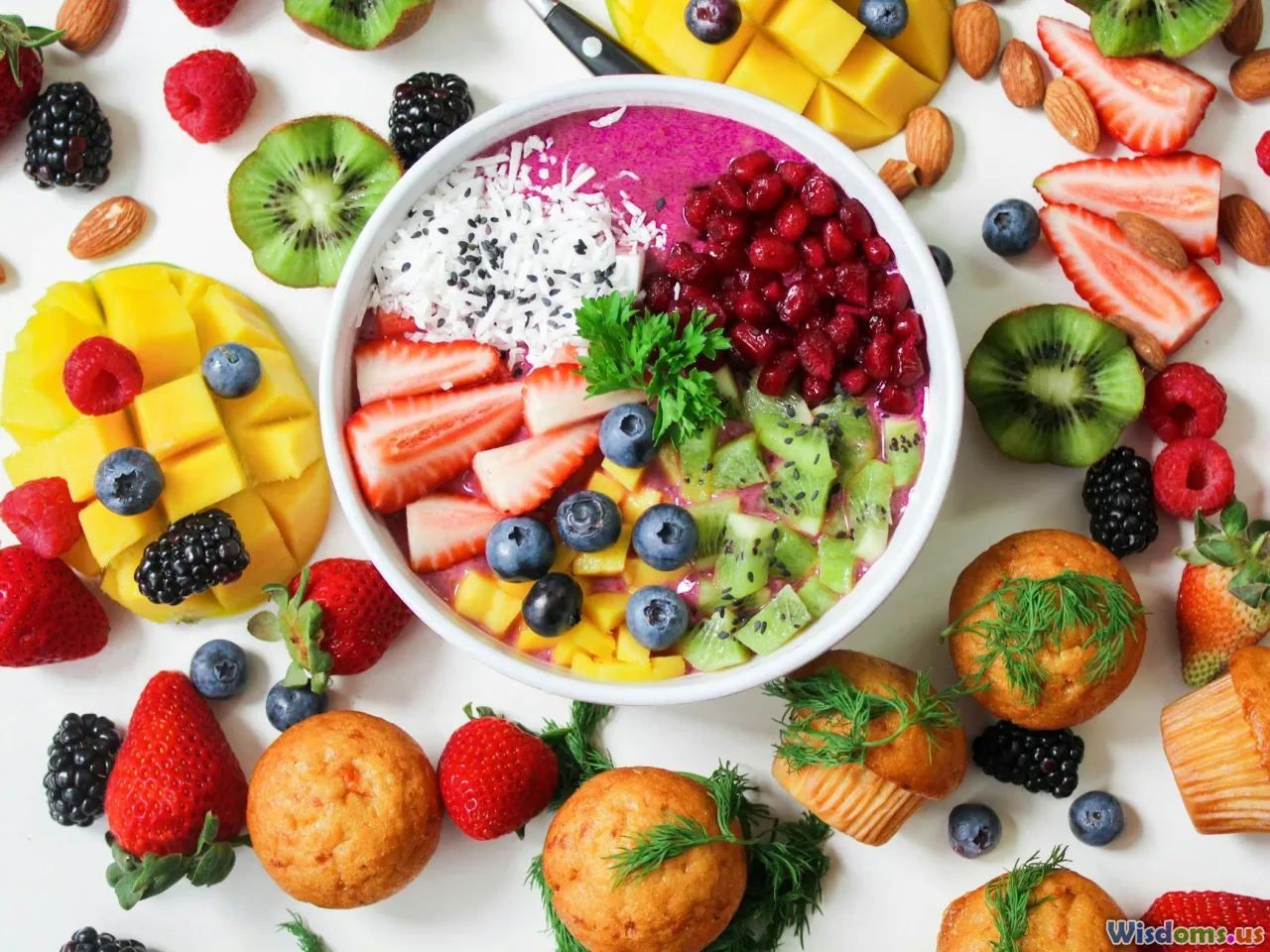
Blueberries are widely recognized for their antioxidant pigments, but they’re also a stealthy source of vitamin K. One cup of these little blue jewels delivers roughly 30% of the daily value. While that’s less than kale, it’s still a significant and delicious boost, particularly given how versatile berries are.
Blueberries, beyond breakfast: Drop them by the handful in your morning smoothie, sprinkle onto wholegrain toast smeared with nut butter, or simply munch them plain. Their tart-sweet profile and vitamin K content make blueberries both a crowd-pleaser and nutritional workhorse.
Did you know? Research links regular blueberry consumption with healthier arteries and better cognitive function in older adults. The boost of vitamin K may be a contributing factor behind these benefits.
Pomegranate Juice
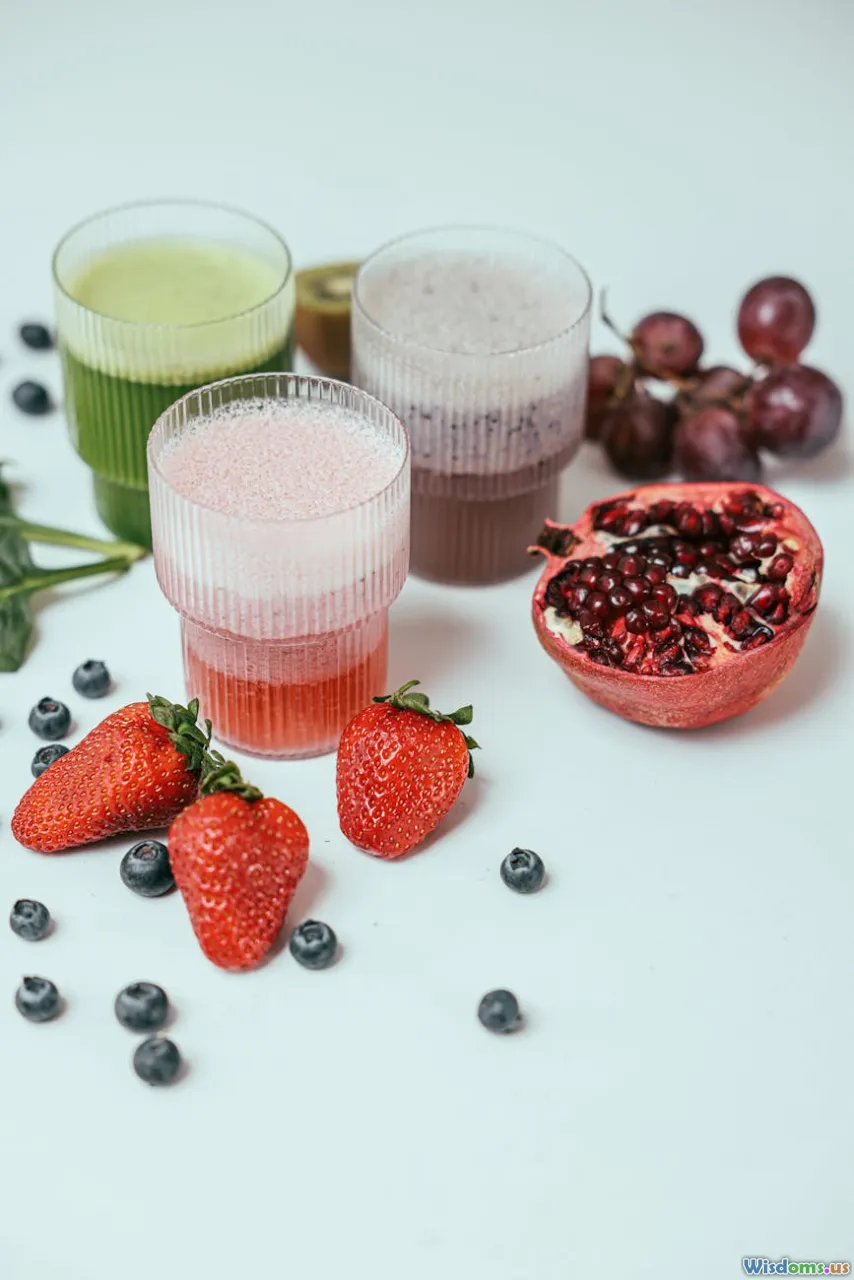
Pomegranates offer an unexpected dose of vitamin K, especially in their juiced form. Just one cup of pomegranate juice contains about 28 micrograms of vitamin K (over 20% of what you need daily). This tart elixir is renowned for its antioxidant capacity, but its vitamin K profile often flies under the radar.
Pomegranate power: Frequent consumption of pomegranate juice may help manage blood pressure and cholesterol, thanks to both its polyphenols and vitamin K content. The juice’s vivid pink hue also livens up beverages and recipes, adding a nutritional punch along the way.
Actionable advice: Mix pomegranate juice into salad dressings, marinade meats for a subtle jewel-bright tang, or swirl it into yogurt and oatmeal bowls. Just aim for varieties without added sugar to maximize health benefits.
Pickled Cucumbers
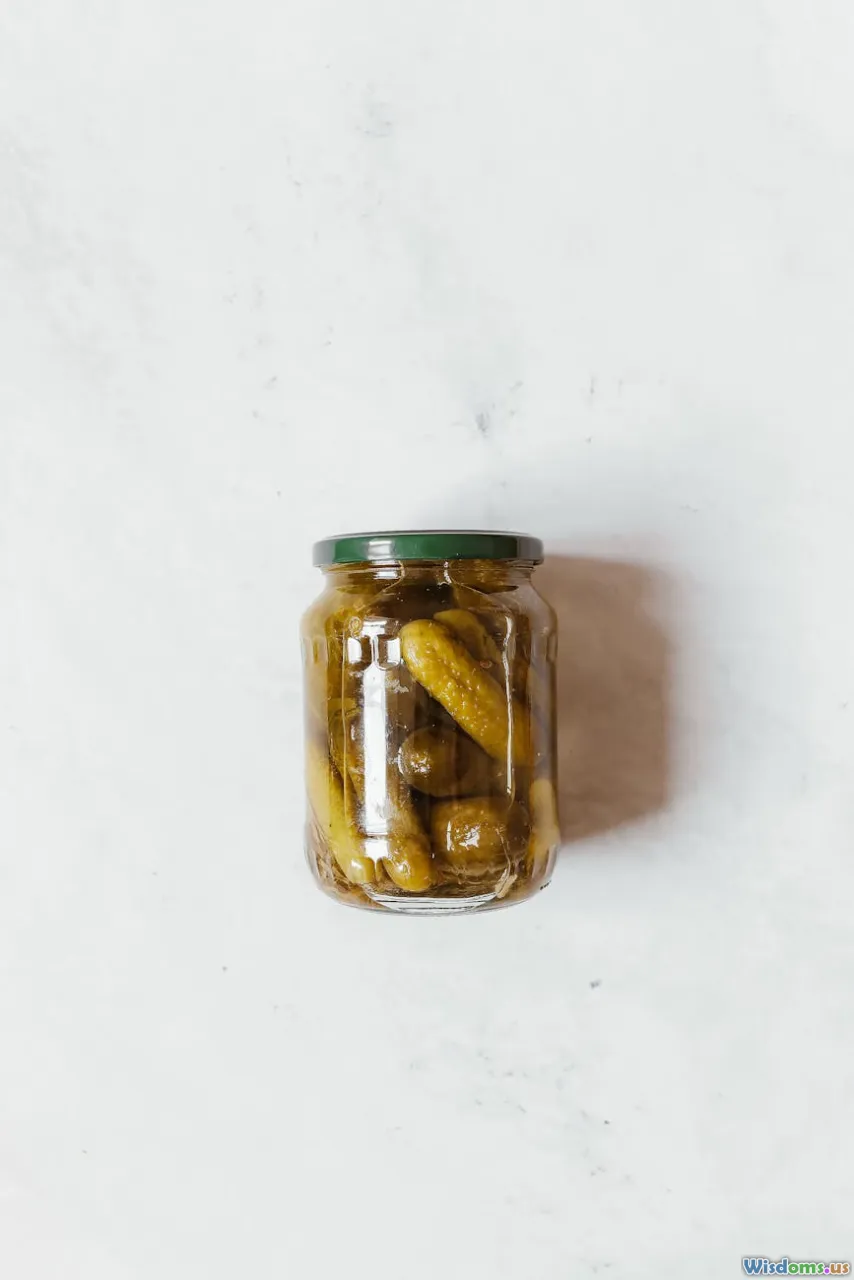
A classic deli staple, pickled cucumbers are far more than flavor-boosters for your sandwich—they’re a solid source of vitamin K. A single spear contains about 30 micrograms, which can add up quickly when you enjoy a few pickles in your meal.
Gut-friendly fermentation: Pickles produced using traditional fermentation (not just vinegar brining) may contain probiotic bacteria, offering dual benefits for digestion and immunity in addition to upping your vitamin K intake. It’s a compelling case for choosing fermented foods.
How to add them: Don’t limit pickles to burgers; chop them into salads for crunch, serve as a tangy side to roasted chicken, or blend into egg or tuna salad for a flavor (and nutrient) boost.
Kiwi Fruit
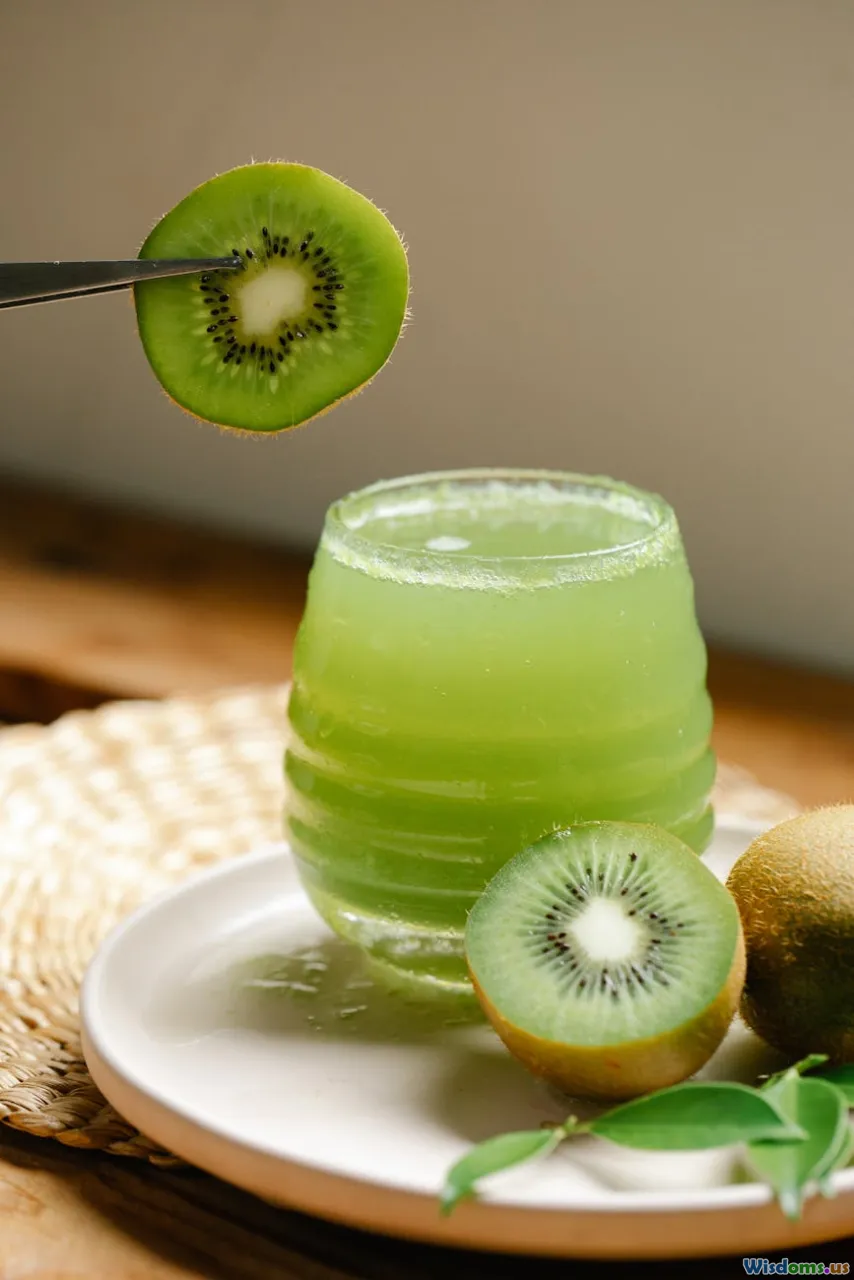
Though kiwi is revered for its vitamin C, it’s also surprisingly rich in vitamin K. A single, medium-sized kiwi serves up nearly a third of your daily requirement. The emerald-green flesh, dotted with tiny seeds, brings an exotic twist—and a fresh nutrient dimension—to breakfast or snack time.
Comparing fruits: Among commonly eaten fruit, only a handful (like blackberries and blueberries) deliver more vitamin K per calorie. The tangy-sweet essence and ease of scooping out a kiwi make it an effortless, fun way to get more vitamin K.
Practical advice: Toss diced kiwi into fruit salad, blend with mango and spinach for a vibrant smoothie, or simply halve and spoon straight from the skin for a fuss-free treat packed with nutrients.
Cashews

Nuts are often applauded for their healthy fats, but cashews come with the bonus of vitamin K—around 10 micrograms per ounce. While that’s less than leafy greens, most people consume nuts in greater quantities, making cashews an underappreciated contributor.
Nutritional synergy: Cashews supply vitamin K alongside copper, magnesium, and beneficial plant compounds. Their buttery texture and subtle sweetness let them shine as portable snacks, tossed into stir-fry, or blended into rich cashew cream.
How to enjoy: Pack cashews in trail mix, use as a salad topping, or grind into a spreadable “cashew butter.” You’ll find every handful offers a cocktail of key nutrients—including vitamin K.
Embracing Variety for Optimal Vitamin K Intake
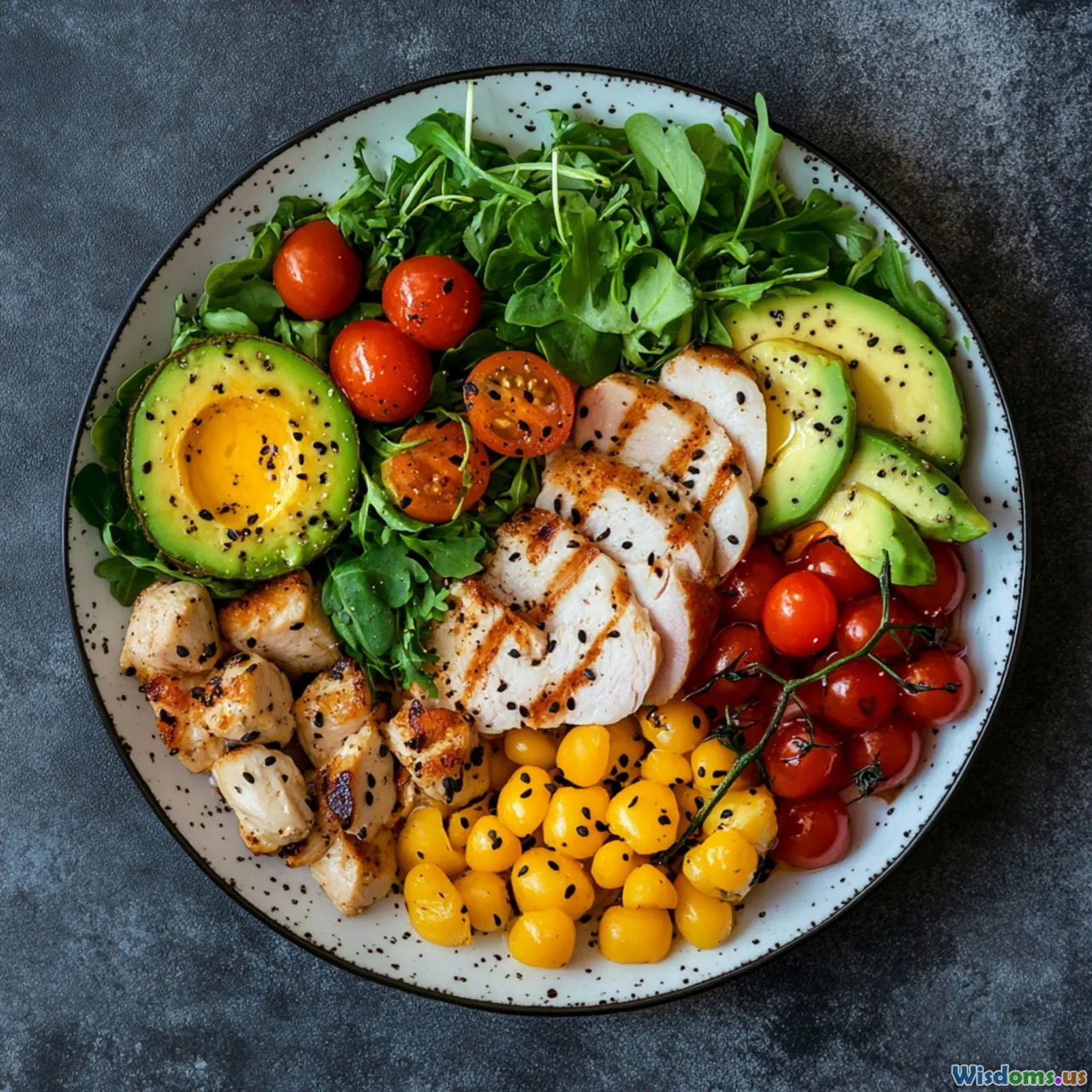
Achieving ample vitamin K shouldn’t rely purely on leafy greens—this vital nutrient is scattered across the food world, often where you least expect it. Fermented soybeans, sweet dried fruits, antioxidant-rich berries, and crunchy pickles present appealing, flavorful options to ensure your diet is diverse and nutrient-dense.
Tips for harnessing surprising sources:
- Rotate these foods throughout your weekly meal plan to enhance absorption and prevent taste fatigue.
- Pair vitamin K-rich foods with healthy fats (like olive oil or avocado); K is fat-soluble and best absorbed alongside dietary fat.
- If you take medications that affect blood clotting (like warfarin), consult your healthcare provider before altering your intake of vitamin K-rich foods.
By embracing these lesser-known sources, you glean all the far-reaching benefits vitamin K offers—from bone strength to cardiovascular resilience—while enjoying far greater variety on your plate. Your journey to nutritional balance is tastier and more colorful than you might think.
Rate the Post
User Reviews
Popular Posts











